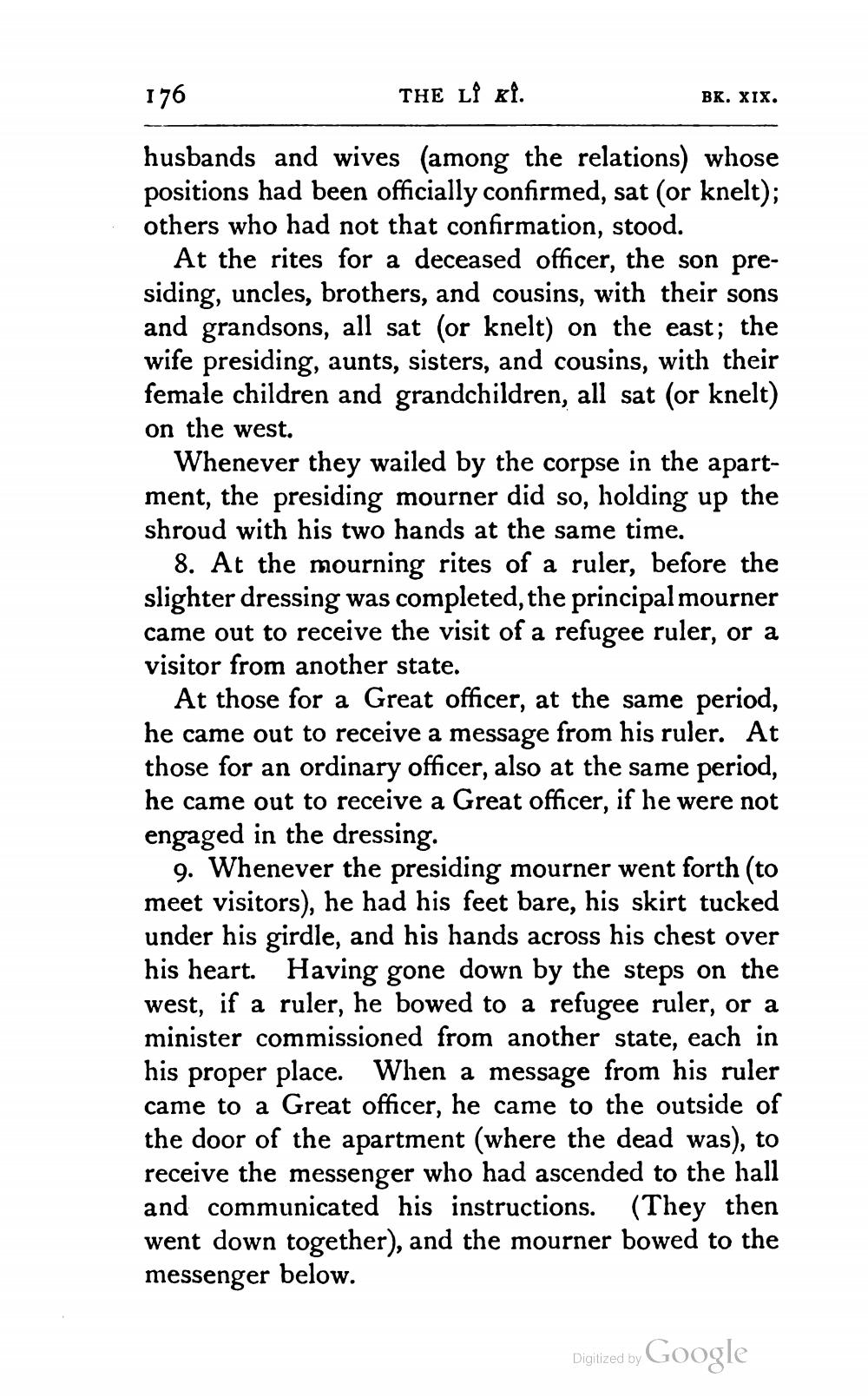________________
176
THE LÎ ki.
BK. XIX.
husbands and wives (among the relations) whose positions had been officially confirmed, sat (or knelt); others who had not that confirmation, stood.
At the rites for a deceased officer, the son presiding, uncles, brothers, and cousins, with their sons and grandsons, all sat (or knelt) on the east; the wife presiding, aunts, sisters, and cousins, with their female children and grandchildren, all sat (or knelt) on the west.
Whenever they wailed by the corpse in the apartment, the presiding mourner did so, holding up the shroud with his two hands at the same time,
8. At the mourning rites of a ruler, before the slighter dressing was completed, the principalmourner came out to receive the visit of a refugee ruler, or a visitor from another state.
At those for a Great officer, at the same period, he came out to receive a message from his ruler. At those for an ordinary officer, also at the same period, he came out to receive a Great officer, if he were not engaged in the dressing.
9. Whenever the presiding mourner went forth (to meet visitors), he had his feet bare, his skirt tucked under his girdle, and his hands across his chest over his heart. Having gone down by the steps on the west, if a ruler, he bowed to a refugee ruler, or a minister commissioned from another state, each in his proper place. When a message from his ruler came to a Great officer, he came to the outside of the door of the apartment (where the dead was), to receive the messenger who had ascended to the hall and communicated his instructions. (They then went down together), and the mourner bowed to the messenger below.
Digitized by Google




